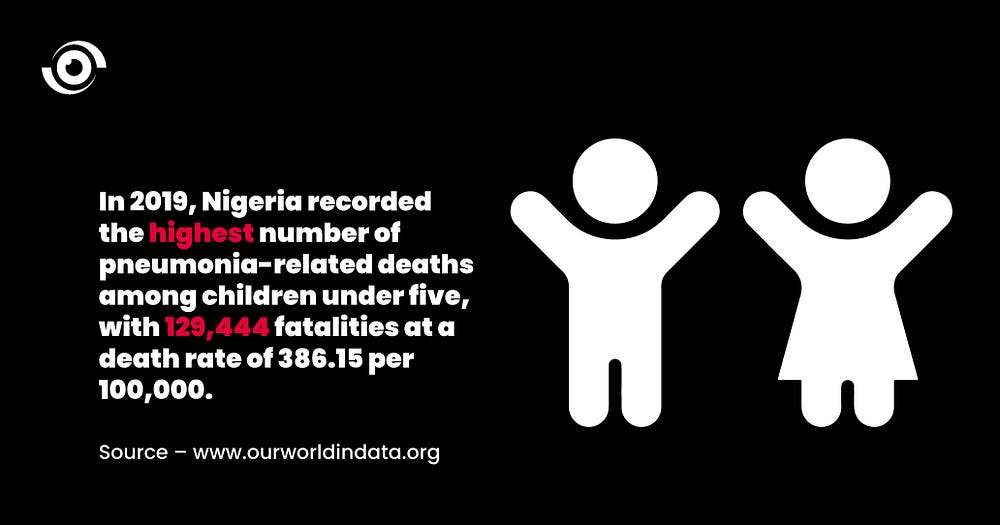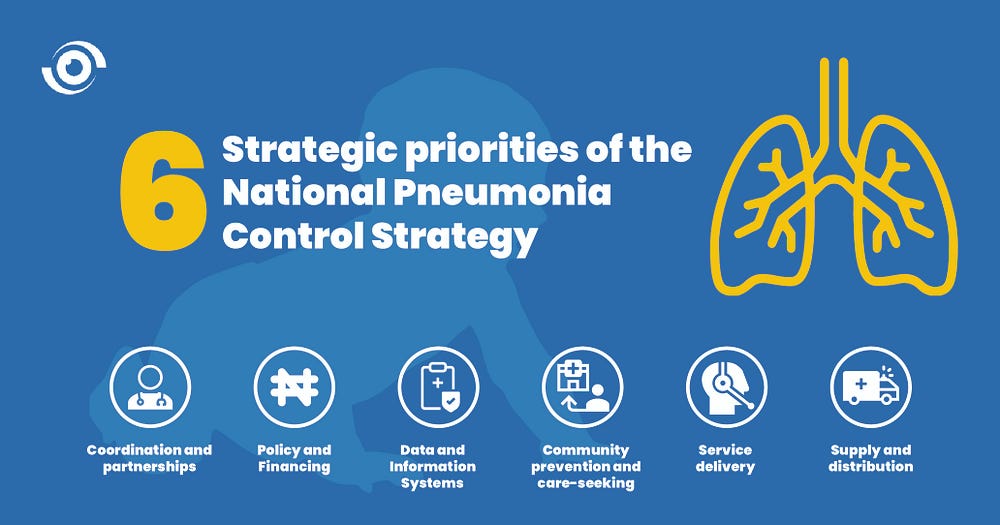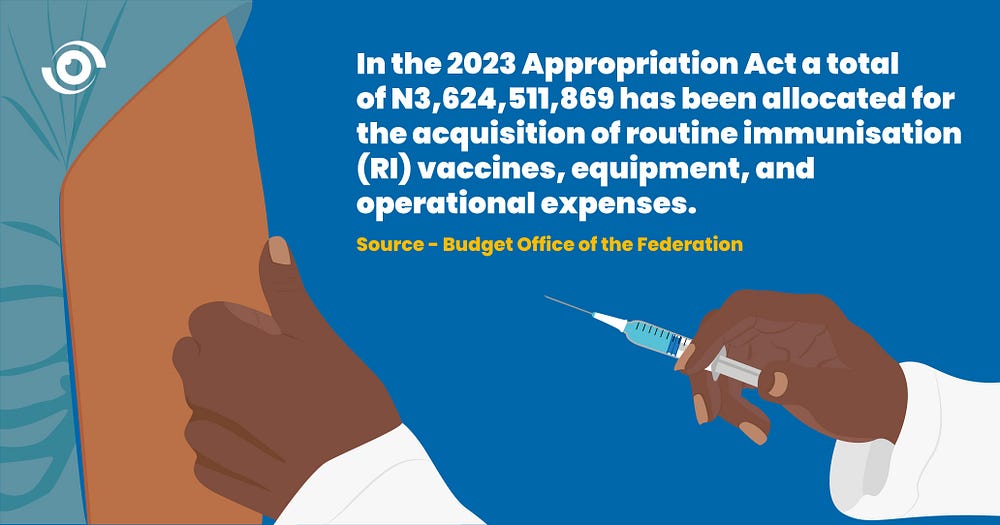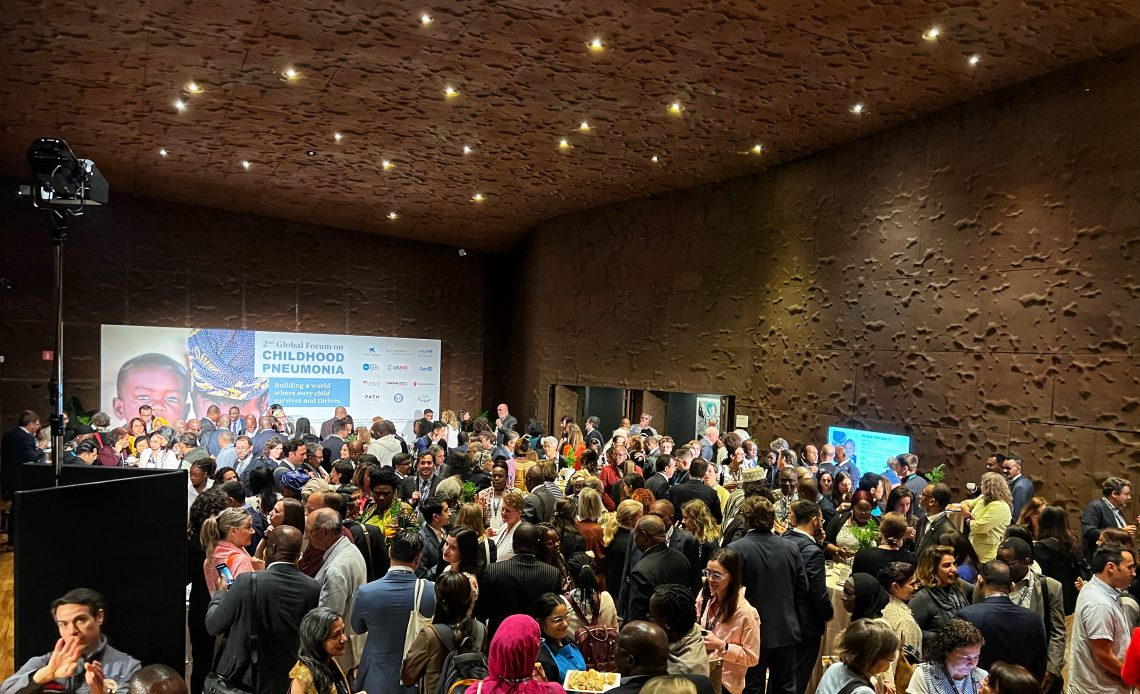Children are more vulnerable to resistant infections in their early years because their immune systems are not fully developed to fight infections. This predisposes them to illnesses like malaria, diarrhoea, tuberculosis, and pneumonia, resulting in death if not quickly addressed.
For three decades, pneumonia has remained the leading cause of child mortality globally, claiming the lives of 671,928 children under five in 2019. Nigeria has the highest number of deaths, with 129,444 children under five dying from pneumonia in 2019 at a death rate of 386.15 per 100,000. However, there is hope in preventing pneumonia deaths, in addition to other childhood killer illnesses, through vaccination programmes. Achieving this requires a coordinated effort from governments, funding partners, the private sector and communities.
In April 2023, the 2nd Global Forum on Childhood Pneumonia took place in Madrid, Spain. The meeting brought together various funders, and multilateral organisations with a common goal: establish commitments to prevent and treat pneumonia cases to reduce the number of under five deaths.

First steps
While it’s crucial to take concrete steps to address any global health challenge, including pneumonia, the first step is always aspiration and commitment to do so. This is followed by seeking the resources and partners necessary for its execution.
Nigeria actively participated in the Madrid forum and committed to “reducing child mortality by rapidly increasing coverage of Pneumococcal Conjugate Vaccine (PCV), measles, and Diphtheria, Tetanus, and Pertussis (DTP) vaccines to above 90% and leading efforts to reduce the number of “zero-dose” children by 25% with vaccinations, nutrition, and other interventions.”
Dr Boladale Alonge, the Director of the Family Health Department at the Federal Ministry of Health (FMoH), presented the commitments on behalf of the Nigerian Government. Building on her statement, she said the ministry would increase the pneumonia care-seeking rate from the current 40%, by increasing community awareness and building the capacity of front-line health workers on integrated management of childhood illnesses to improve the survival rate for such children. However, the question remains: “What comes next after these commitments have been made?
From commitment to action
For these commitments to translate to positive impact, the right partners, resources, and policies must be put in place. The COVID-19 pandemic impacted the implementation of some of the plans and commitments made during the first global forum, which also took place in Spain in 2020. There, the former Minister of State for Health, Dr Adeleke Olorunnimbe Mamora, announced the introduction of Nigeria’s first-ever National Pneumonia Control Strategy while acknowledging that progress in addressing pneumonia has been insufficient as its control is complex. The strategy identified six strategic priorities to strengthen the quality and reach of proven interventions that address the disease.

Regarding funding, a critical aspect for turning commitments into action, the 2023 appropriation act for the FMoH has allocated N3.6 billion to procure routine immunisation (RI) vaccines, devices and support operational costs. Timely release and effective utilisation of these funds will help address various barriers identified in the pneumonia strategy. Some of the barriers include limited prevention strategies, low care-seeking behaviour, and gaps in health worker skills.

So, what is the way forward?
While there are lifesaving commodities that can prevent pneumonia, access is limited by an inequitable distribution system. Resource-constrained countries often face challenges in obtaining these supplies as high-income countries are prioritised, a disparity that was evident during the pandemic.
A $200 million commitment by the Bill & Melinda Gates Foundation spread over 18 months hopes to address the shortfalls. Announcing the investment at the Madrid forum, Keith Klugman, the foundation’s Director for Pneumonia and Pandemic Preparedness, said it would help ensure the availability and affordability of vaccines for Gavi, the Vaccine Alliance. Gavi helps ensure vaccine equity globally and played a critical role when vaccines became available during the COVID-19 pandemic.
According to Dr Omokhudu Idogho, Managing Director of the Society for Family Health, it is essential to recognise and leverage the opportunities presented by the intersectionality of pneumonia with other health conditions. For instance, nutrition plays a critical role in how children cope with illnesses, especially in the context of pneumonia. “One of our projects is looking at nutrition and trying to interlink it with integrated childhood case management by looking at health conditions that bring a child into the primary healthcare setting and be able to make distinctions between malaria and pneumonia,” Idogho said. He noted that the more the intersectionality is addressed with the drive towards more integrated responses, the faster Nigeria can be removed from the red list of countries still grappling with pneumonia.
One factor that mitigates commitments made during global convenings is the transitionary state of governments. A new government may have different priorities, so it is critical to ensure that commitments are institutionalised in a way that they are not affected by changing governments.
Pneumonia does not discriminate based on who is in power, and reducing mortality rates requires decisive action backed by unwavering dedication to fulfilling these commitments.


